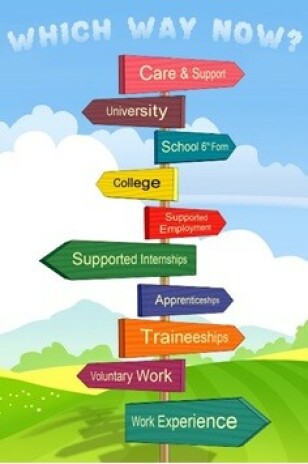Post 16 Pathways and Progression

All students must stay in education or training until their 18th birthday, you can leave school on the last Friday in June if you'll be 16 by the end of the summer holidays, but you must then choose whether to:
- stay in full-time education - for example at Stormont House Sixth Form, Full time Sixth Form College, Further Education college or University Technical College (UTC)
- start an Supported Internship, Apprenticeship or Traineeship
- spend 20 hours or more a week working or volunteering while also doing part-time education or training
Your local authority has a duty to make sure you are offered a suitable place by the end of Year 11. The discussion about your Post 16 provision will be discussed in your Year 11 Annual Review and your future provision will be named in your updated Education Health and Care (EHC) plan.
Stay in Full Time Education
You can take a range of subjects Post 16, depending on your KS4 results, that lead to qualifications that keep your options open. Qualifications available are GCSE's, A levels, T Levels or BTECs. T Levels and BTECs allow you to focus on a chosen career area like construction, healthcare science or digital careers. Some careers may ask for specific qualifications, so always do some research into where the course you are interested in might lead. Below are some informational links about qualifications for students who chose to stay in full time education:
Combine work and study
You may wish to gain practical skills, get work experience and a qualification that employers need. If you would prefer to have the option to combine work and study Post 16 then below is some information about the different types of practical study programmes:
Below are some posters designed to help young people and their parents/carers to gain a brief understanding of what pathways looks like.
SEND Group 1: Pathways poster for young people who typically are not likely to take GCSE or Level 2 qualifications.
SEND Group 2: Pathways poster for young people who typically are likely to take GCSE or Level 2 qualifications.

